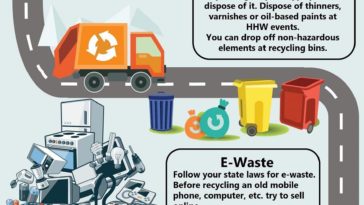The Improvement Of Dumpster Rental: An Exam Of Its Background, Current State, And Future Leads
The Improvement Of Dumpster Rental: An Exam Of Its Background, Current State, And Future Leads
Blog Article
Developed By-Therkelsen Lindgaard
As you ponder the development of dumpster leasing, think about how each period has actually contributed to shaping the waste monitoring landscape we browse today. From modest starts in the 1930s to the cutting-edge technologies of today, the journey of dumpster leasing has actually been marked by development and adjustment. But what lies on the perspective for this crucial service? The future patterns in lasting techniques hold the trick to opening an extra reliable and eco-conscious technique to waste monitoring. Remain tuned to uncover just how the dumpster rental market is poised to accept a greener tomorrow.
Historical Roots of Dumpster Rental
Check out the origins of dumpster rental and how it has actually formed waste management practices in time.
Dumpster rental traces back to the 1930s when George Roby Dempster, a Tennessee business owner, developed the Dempster-Dumpster. This crucial production reinvented waste disposal by providing an assigned container for collecting and transferring garbage efficiently. Originally utilized for building sites, the idea quickly increased to property and industrial settings, resulting in the establishment of the initial dumpster rental solutions in the 1960s.
Over the years, dumpster service has actually significantly affected waste administration methods by advertising ease, sustainability, and organization. The capability to streamline waste in specialized containers simplifies collection procedures, lowers littering, and boosts recycling efforts. Additionally, construction roll off dumpster rental leasing encourages individuals and businesses to take on accountable waste disposal routines, adding to cleaner atmospheres and reduced ecological effect.
Modern Innovations in Waste Monitoring
Including sophisticated technologies and lasting practices has changed waste monitoring in recent times, enhancing efficiency and environmental effect. One considerable innovation is using wise waste management systems that use sensors to keep track of waste levels in real-time, enhancing collection courses and routines. These systems help in reducing unnecessary pickups, reducing fuel consumption and discharges.
Another modern-day innovation is the application of waste-to-energy facilities, where non-recyclable waste is converted into energy through processes like incineration or anaerobic digestion. This not only reduces the volume of waste destined for land fills but additionally generates renewable energy.
In addition, the introduction of single-stream recycling has simplified the reusing procedure for consumers, causing higher participation rates and higher diversion from garbage dumps. In addition, improvements in composting technologies have actually made natural waste management much more reliable, turning food scraps and lawn waste right into beneficial compost for farming use.
Anticipated Trends in Lasting Practices
Sustainable waste management methods are developing rapidly to satisfy the enhancing needs for environmental duty and resource effectiveness. As you want to the future, a number of vital trends are expected to shape the sector. One major focus will get on minimizing waste generation via better product layout and packaging. https://azbigmedia.com/business/junk-removal-services-in-los-angeles/ will significantly embrace round economic climate principles, aiming to minimize waste and make the most of the lifespan of products.
Another fad to look for is the rise of innovative recycling innovations. Developments in chemical recycling and pyrolysis are expected to offer new remedies for dealing with complicated or contaminated waste streams that typical recycling techniques struggle to process successfully. These technologies have the potential to transform how we manage waste, transforming difficult-to-recycle products right into valuable resources.
Furthermore, expect to see a better focus on organic waste diversion. Composting programs and anaerobic digestion facilities will end up being extra prevalent as communities aim to lower the amount of organic matter sent out to landfills. By investing in these sustainable practices, we can move towards an extra circular and resource-efficient waste administration system.
Final thought
To conclude, dumpster rental has actually come a long way given that its inception in the 1930s. From its humble starts on building sites to its extensive usage in domestic and industrial settings, the sector has actually constantly evolved to meet the changing needs of waste management.
With the intro of contemporary innovations and a concentrate on lasting practices, the future of dumpster leasing looks appealing, with a strong emphasis on effectiveness, environmental duty, and technology.
